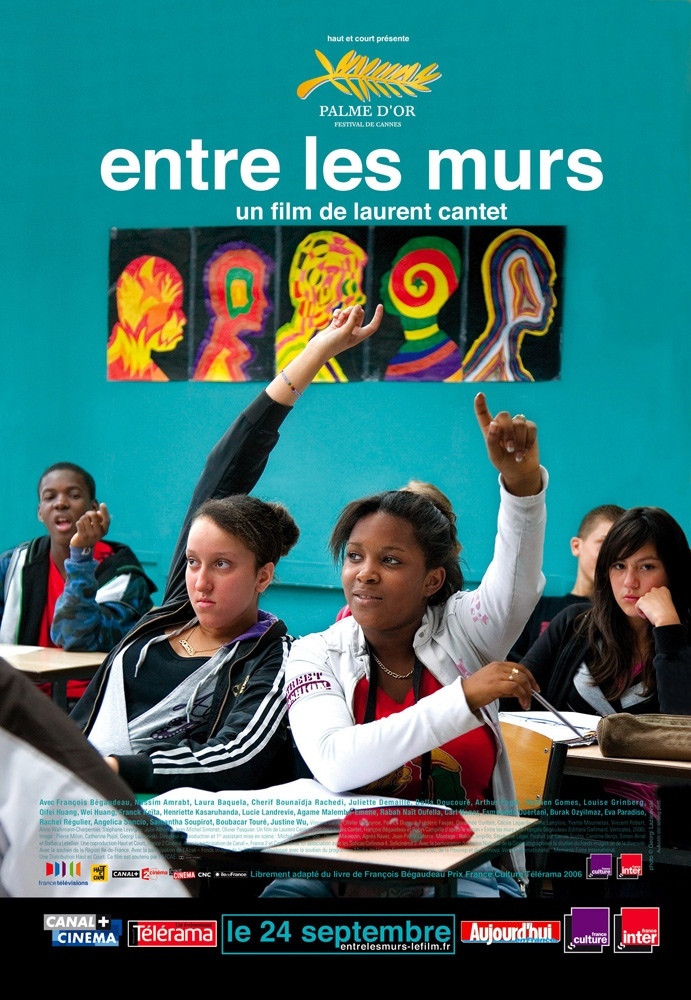François Bégaudeau was a young teacher of French language and literature at a school in north-east Paris, in an area that had been designated a ‘zone d’éducation prioritaire’ due to its social problems and low-achieving students. He then wrote a novel about his experiences, called Entre les murs (Within the walls). He then, with the director Laurent Cantet, adapted his novel into a screenplay for a film. He then played the starring role in Cantet’s film as ‘François’, a young teacher of French language and literature at a school in north-east Paris, in a… well, you get the idea. The film was a huge success, and won the 2008 Palme d’or at the Cannes film festival, and it’s easy to see why. Bégaudeau clearly knows what he’s talking about, and it’s rare to see a film set in a school that rings as true as this one. Bégaudeau’s teacher shows a passion for bringing out his students’ potential, but also shows the frustrations involved in having to teach French versification or the use of the imperfect subjunctive to a bunch of not always interested and often rowdy teenagers. He’s also not afraid to show his character making mistakes. The film’s turning point comes after the class’s delegates to School Council, Louise and Esmerelda, have giggled and whispered their way through a staff meeting, then promptly relayed all the sensitive information discussed by the teachers to the rest of the class, including all the grades people are due to receive at the end of the term, and the fact that François described one pupil in particular as ‘limited’ intellectually. The following day, as the class grows increasingly hostile towards him, François loses his cool and inappropriately accuses the two delegates of having behaved like ‘pétasses’, a word which makes the whole class erupt and will have consequences through the rest of the film.
I use this scene from the film in my fourth-year Advanced Translation seminars, where we always spend a good few minutes merrily discussing what exactly the teacher has called his students. When he is forced to defend himself later in the film, he claims that a ‘pétasse’ is ‘une fille pas maligne qui ricane bêtement’ (‘a girl who’s not too bright and giggles stupidly’). His students insist that it means a prostitute. I shall leave you to discover how the dispute is resolved. The word obviously causes trouble for the people doing the subtitles too, who have to come up with a term in English that can fit both meanings. The UK DVD release opts for ‘slut’, which strikes me as being rather more offensive and less ambiguous than the original. Or at least it did, until I discovered recently that for some people in this country it simply means ‘someone who doesn’t clean behind their fridge’.
The performances in the film are extraordinary – especially from the teenagers who play the pupils, who never once look like they’re acting a part – and the film is hilarious, gripping and moving. Sean Penn called it a ‘perfect movie’ when he awarded it the Palme d’or, and I notice that it also received a five-star review from Heat magazine. When the Cannes film festival and Heat agree on a film, it surely must be something special. I recommend you see it straight away. (It’s available here, or to rent on Lovefilm, Netflix and the like.) Also, it offers good ammunition should you later find yourself at university required to learn the forms and usage of the imperfect subjunctive. The French kids have never heard of it either.
https://www.youtube.com/watch?v=t8HWJqgMAhU
posted by Simon Kemp

